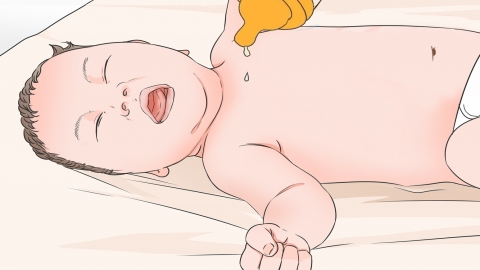5岁宝宝说话口齿不清What to do
Under normal circumstances, unclear speech in a 5-year-old child may be caused by delayed language development, poor oral muscle coordination, short lingual frenulum, hearing impairment, cleft palate, or other reasons. Depending on the specific situation, improvements can be achieved through general interventions, medication, surgery, or other treatments. Detailed analysis is as follows:
1. Delayed Language Development
When a child's language acquisition progresses slowly, with insufficient vocabulary and immature coordination of speech organs, it can lead to unclear articulation. Engage in frequent conversations with the child, encourage verbal expression, and guide pronunciation practice through storytelling and singing nursery rhymes.

2. Poor Oral Muscle Coordination
Insufficient strength or uncoordinated movement of the oral muscles can impair precise control of the tongue and lips, affecting speech clarity. Encourage activities such as blowing bubbles or chewing slightly firm foods to strengthen oral muscles. Oral muscle massage may also be beneficial.
3. Short Lingual Frenulum (Tongue-Tie)
A short lingual frenulum restricts tongue mobility, making it difficult to pronounce sounds that require tongue elevation or tip movement (e.g., retroflex or alveolar consonants). Frenulum stretching exercises may be performed under medical guidance. If ineffective, a frenulotomy (surgical release) may be required, followed by speech therapy.
4. Hearing Impairment
Mild hearing loss can interfere with a child’s ability to perceive and imitate sounds, resulting in inaccurate pronunciation. Hearing should first be improved through interventions such as hearing aids, followed by speech training. For conductive hearing loss caused by otitis media, medications such as amoxicillin-clavulanate potassium dry suspension, cefaclor dry suspension, or azithromycin dry suspension may be prescribed under medical supervision to treat the underlying condition.
5. Cleft Palate
A cleft in the roof of the mouth creates an abnormal connection between the oral and nasal cavities, disrupting airflow control during speech, leading to hypernasality and unclear articulation. Surgical repair of the cleft palate is necessary, followed by systematic speech rehabilitation therapy to improve the child’s speech.
In daily life, spend time interacting verbally with the child, avoiding excessive correction of pronunciation to prevent anxiety. Schedule regular pediatric health check-ups to detect hearing or oral issues early, and provide a supportive language environment, minimizing exposure to multiple languages simultaneously, which may interfere with language learning.





